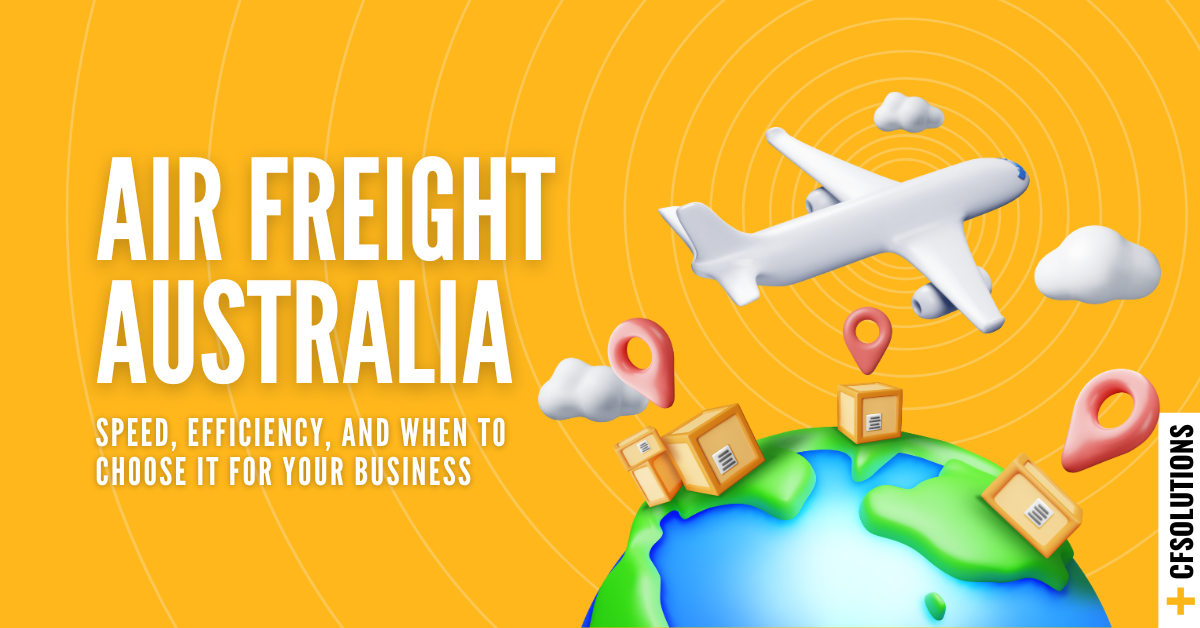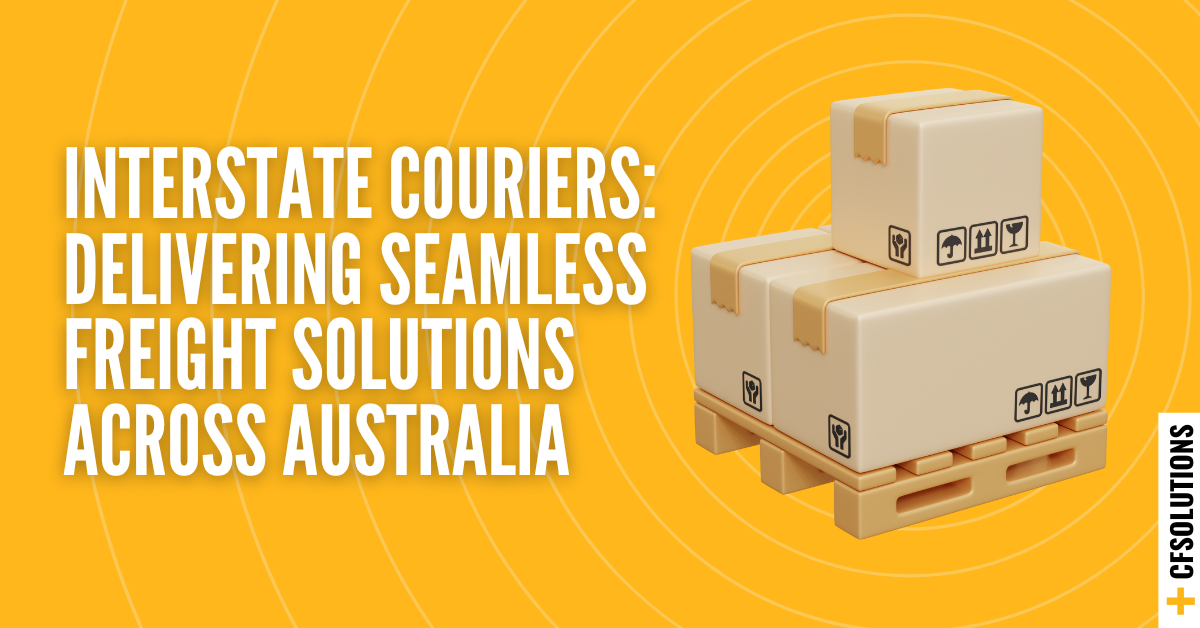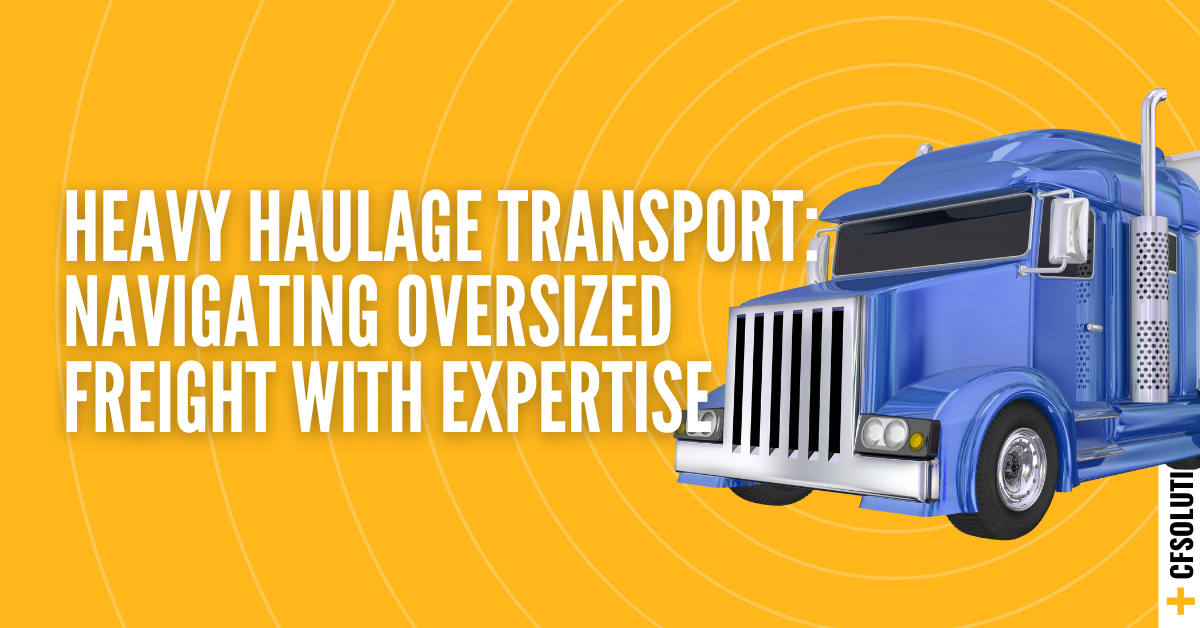
For businesses that need to move goods quickly across Australia, air freight is the fastest and most efficient interstate transport option. Whether you’re handling time-sensitive shipments or high-value goods that require extra security, air freight offers speed and reliability that other transport modes can’t match. In this guide, we’ll explore the benefits of air freight in Australia, when it’s the right choice for your business, and key considerations to keep in mind.
Why Choose Air Freight in Australia?
Speed and Efficiency: The biggest advantage of air freight is its speed. Air transport allows businesses to move goods between states in a matter of hours, making it ideal for urgent or time-critical shipments. When same-day or next-day delivery is essential, air freight ensures goods reach their destination as quickly as possible.
Reliability: Air freight services typically follow strict schedules, which means fewer delay potentials in comparison to road or rail transport. With frequent flights between major cities, air freight offers dependable delivery windows and ensures that high-priority shipments arrive on time.
Security for High-Value Goods: For businesses shipping high-value or sensitive items, air freight offers an added layer of security. Goods are typically handled less frequently, spend less time in transit, and are often housed in secure environments, reducing the risk to the product.
Access to Remote Locations: While air freight is primarily used for interstate shipments between major cities, it’s also a viable option for reaching remote or rural areas with limited road access. Many remote locations have small regional airports that allow for the direct delivery of goods, especially when time is a factor.
When Should You Choose Air Freight?
- Time-Sensitive Deliveries: If you’re dealing with products that must reach their destination quickly—such as perishable goods, pharmaceuticals, or urgent spare parts—air freight is often the only viable solution. Its ability to meet tight deadlines makes it indispensable for industries where speed is critical.
- High-Value or Fragile Shipments: Businesses shipping electronics, jewellery, medical devices, or other high-value goods often prefer air freight due to its secure handling processes and faster transit times. Minimising the time spent in transit reduces the risks associated with damage or loss.
- Long-Distance or Remote Shipments: For deliveries to locations that are difficult to access via road or rail, air freight can be the most efficient option. Remote communities, islands, or regions with poor road infrastructure often rely on air transport to receive essential goods.
- Reducing Inventory Lead Times: For businesses that operate on tight inventory cycles, air freight can be a critical tool for reducing lead times. By getting products into your supply chain faster, you can maintain lower inventory levels while still meeting customer demand, particularly for industries with high turnover or fluctuating stock levels.
Air Freight vs. Other Freight Options
Cost Considerations: While air freight is the fastest option, it is a premium option in comparison to road or rail transport. Businesses need to weigh the cost-benefit ratio when deciding whether to use air freight, especially for high-volume or bulky shipments. For smaller, valuable goods or urgent deliveries, the speed of air freight often justifies the cost.
Volume and Weight Limitations: Air freight is generally better suited to smaller, lighter shipments. If you need to move large volumes of freight or heavy items, road or rail freight may offer more cost-effective solutions. However, for high-priority shipments where time is critical, air freight is unmatched in terms of speed.
Flexibility: While air freight offers speed and reliability, it may be less flexible than road or rail in terms of pickup and delivery options. Carriers need to coordinate with airport schedules and businesses need to ensure that their logistics provider can handle the transition from air to ground transport for last-mile delivery.
Key Considerations When Choosing Air Freight:
Packaging and Handling: Air freight shipments often involve strict weight and size limits, so ensuring that your goods are properly packaged and meet airline regulations is essential. Using durable, lightweight materials for packaging can help protect your items and reduce shipping costs.
Real-Time Tracking and Visibility: Partnering with a provider that offers real-time tracking for air freight allows you to monitor the progress of your shipments. This visibility ensures you can respond quickly to any delays or issues and keep your customers informed about their deliveries.
Compliance with Regulations: Shipping goods via air freight requires adherence to specific regulations, particularly for international shipments or when dealing with dangerous goods. Ensure your provider is well-versed in these requirements to avoid delays or compliance issues.
How to Maximise the Benefits of Air Freight:
Use Air Freight for Critical Shipments: Prioritise air freight for goods that must be delivered quickly or require extra care during transit. By reserving air transport for your most time-sensitive or valuable shipments, you can optimise costs while ensuring critical deliveries are made on time.
Combine Air Freight with Other Transport Modes: For more complex logistics needs, combining air freight with road or rail transport can provide a balance between speed and cost. Goods can be flown between major cities and then delivered by truck to their final destination, allowing for efficient last-mile delivery.
Leverage Multi-Carrier Solutions: Working with multiple carriers allows you to choose the best air freight option for each shipment. This flexibility ensures that you have access to the most efficient routes and schedules, while also giving you the ability to compare costs across providers.
When Air Freight May Not Be Suitable:
Large or Bulk Shipments:
Air freight is less suited for transporting large volumes of goods or bulky items. In these cases, road or sea freight may offer a more practical and cost-effective solution, especially when time is not a critical factor.
Low-Value Goods:
Shipping low-value items via air freight may not be cost-effective, as the higher shipping costs could outweigh the value of the goods themselves. For these shipments, slower but more economical options like road or rail may be more appropriate.
Air freight plays a crucial role in Australia’s logistics network, offering unmatched speed and reliability for businesses that need fast and secure deliveries. By understanding when and how to use air freight effectively, businesses can optimise their logistics strategy and ensure that critical shipments reach their destination on time. Whether you're delivering high-value goods or meeting tight deadlines, air freight is the key to efficient, reliable interstate transport.
Considering broader logistics options? Discover how interstate freight complements air freight to create a seamless, cost-effective supply chain. Explore our interstate freight guide.
Subscribe to our Newsletter or Follow Our Socials
- by Customised Freight Solutions
- 0 Comments
Interstate Couriers: Delivering Seamless Freight Solutions
Australia’s vast geography makes efficient interstate courier ...
Read More- by Customised Freight Solutions
- 0 Comments
Same Day Delivery Couriers: Speed and Reliability for Time-Critical Freight
In today’s fast-paced world, speed and reliability are more important ...
Read More- by Customised Freight Solutions
- 0 Comments
Heavy Haulage Transport: Navigating Oversized Freight with Expertise
Heavy haulage transport is the backbone of Australia’s logistics ...
Read More



